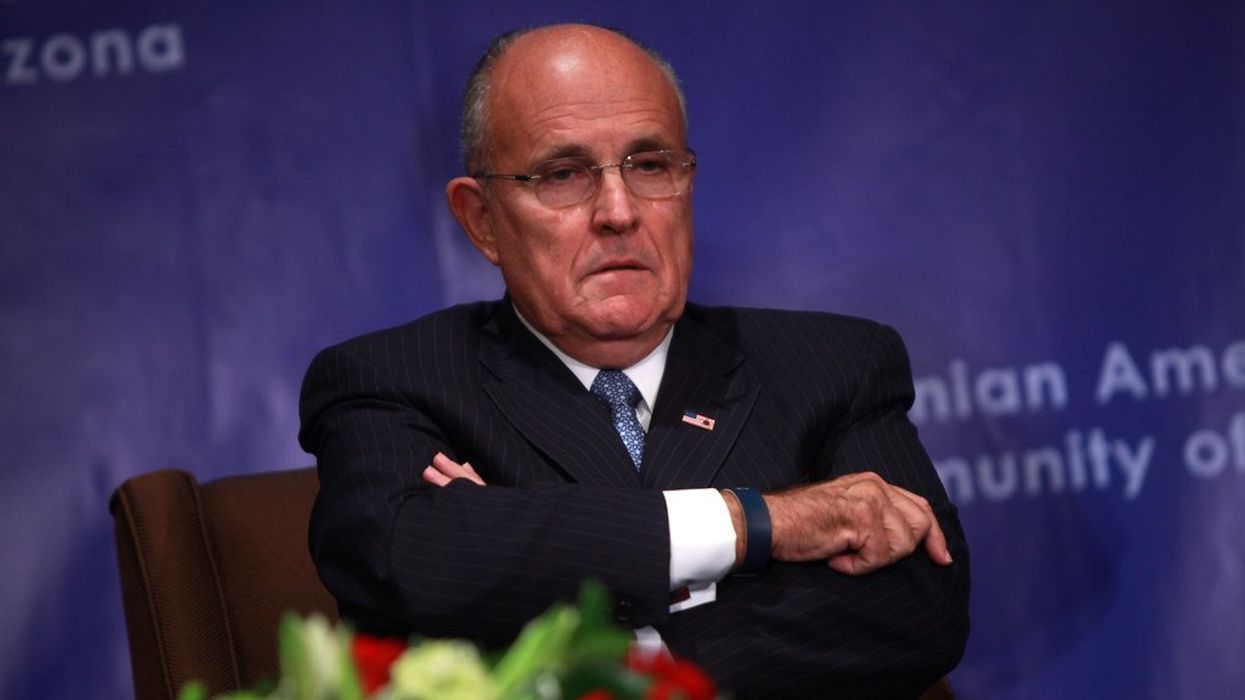Right-wing election deniers are seeing consequences of their efforts to overturn the 2020 presidential election by facing a slew of defamation lawsuits, The Guardian reports.
Per the report, "Defamation law has traditionally been sparingly used in the US, given the very high bar that plaintiffs have to meet. Under the 1964 supreme court ruling New York Times Co v Sullivan, they have to be able to show 'actual malice' on behalf of the accused.
Rachel Goodman, an attorney with non-partisan advocacy organization Protect Democracy, told The Guardian, said the group's legal action is about "accountability as a way of ensuring that our democracy can get back on track."
POLL: Should Trump be allowed to hold office again?
Currently, according to the report, Protect Democracy has five ongoing defamation suits "against individuals and outlets who propagated election denial, including ex-President Donald Trump lawyer and former New York mayor Giuliani, the Gateway Pundit and the beleaguered undercover video outfit Project Veritas," as well as conspiracy theorist Dinesh D'Souza, and failed Arizona GOP candidate Kari Lake.
The Guardian notes election denier and My Pillow CEO Mike Lindell also faces defamation suits from voting machine technology firms Dominion and Smartmatic.
Per the report, "The lawsuits are designed in part as a strategy of deterrence," as "those pressing the libel suits hope that anyone contemplating a renewed assault on next year's presidential election, in which Trump is once again likely to be the Republican candidate, will look at the potentially devastating costs and think twice."
Giuliani's trial — Protect Democracy's first in its series of defamation suits — is set to take place in federal court in Washington, DC on December 11.
"This is lawfare," Lindell told the Guardian. "Lawfare hasn't been used in our country since the late 1700s, and that's what they are doing."
READ MORE: Lawyers are ditching top Trump allies for not paying their bills: report
The right-wing conspiracy theorist argued, "I have a first amendment right. These defamation cases are damaging free speech – people are afraid to speak out, to come forward with anything."
Goodman emphasized in her interview that "the first amendment does not provide blanket protection for mendacity," saying, "It does not protect those who knowingly spread lies that destroy reputations and lives."
The lawyer added, "We aim to demonstrate that there is no immunity for spreading intentional and reckless lies. Ensuring accountability for intentional defamation is a crucial part of deterring election subversion from happening again in 2024."
The Guardian's full report is here (subscription required).


